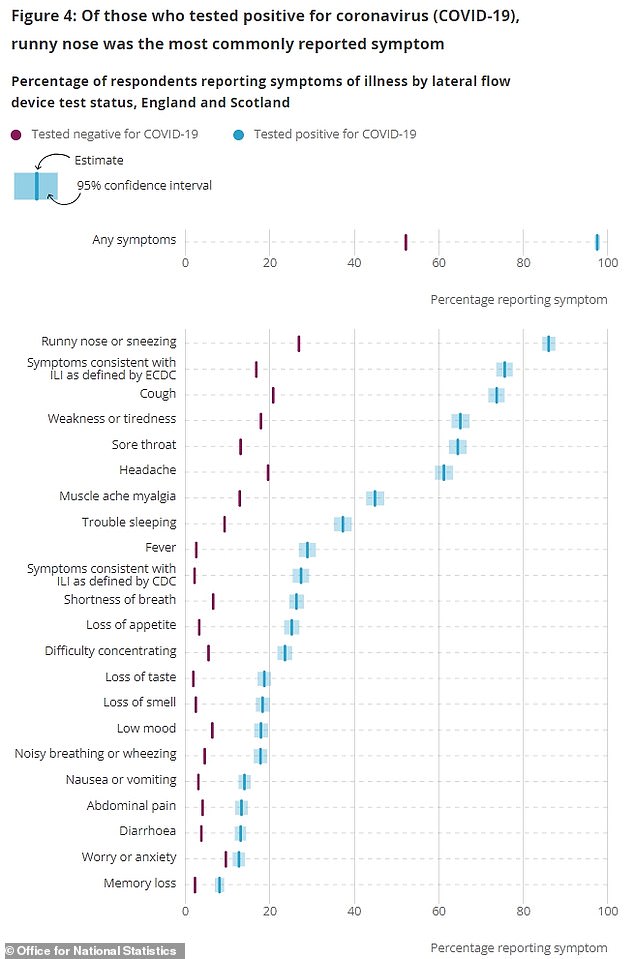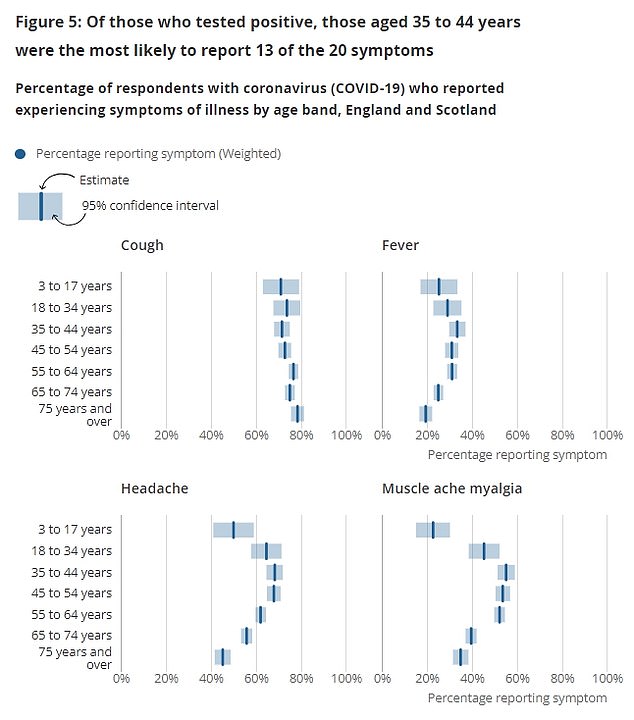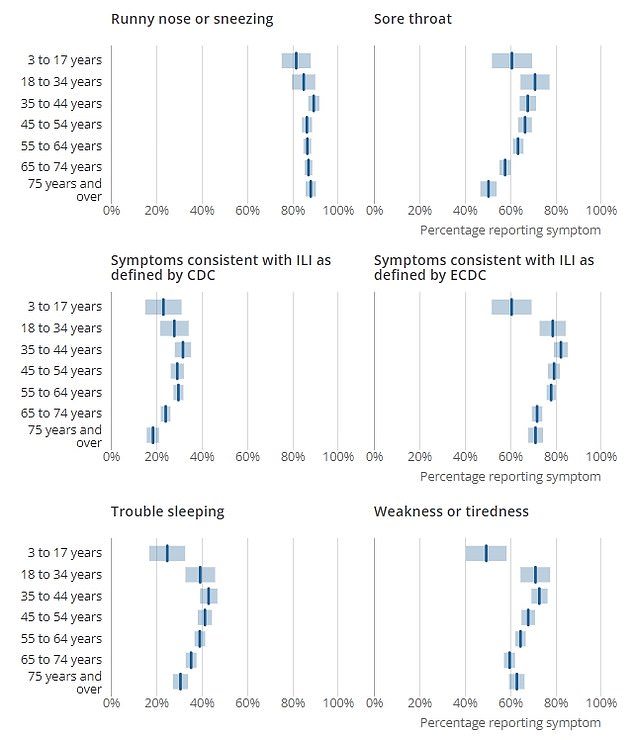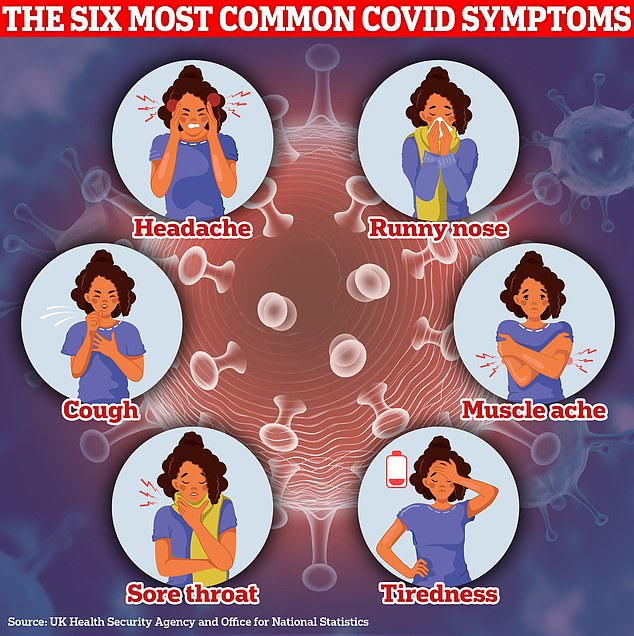A runny nose is now the most common symptom of Covid, data shows.
More than 80 percent of Britons suffer colds when infected with the virus that causes the pandemic.
Only a fifth of sufferers lose their taste or smell, one of the original signs Britons were warned about when the virus burst onto the scene in early 2020.
Meanwhile, fever, another of the classic symptoms of Covid, only affects a quarter of people who become infected.
ONS data on Covid infections today shows that more than 80 per cent of Brits suffer from a runny nose when infected. Loss of taste or smell, one of the original telltale signs of the virus, accounts for just under a fifth of all recorded symptoms.

More than 80 per cent of Britons suffer from a runny nose when infected with the virus. However, loss of taste or smell (one of the original telltale signs) accounts for just under a fifth of all recorded symptoms.
Symptoms were tracked from self-reported data from almost 430,000 Britons.
Covid has evolved over time to become less deadly.
Immunity levels built up through vaccine rollouts and previous waves remain high, allowing society to treat it similarly to the flu without the need for pandemic-era restrictions.
Experts have long said that Covid is “on track” to become seasonal and even eventually become more of a cause of the common cold.
Other coronaviruses known to infect humans typically cause mild symptoms.
However, health officials continue to advise people with respiratory symptoms to limit their contact with vulnerable groups, such as the elderly, pregnant women and those with underlying illnesses, for fear of becoming seriously ill if they become infected.
Data from the Office for National Statistics (ONS) published today shows that almost three quarters of Covid patients who test positive have a cough (73.8 per cent), making it the second most common symptom.
Cough was one of three hallmark signs of Covid listed by health chiefs during the darkest days of the pandemic.
Tiredness, muscle aches, sore throat and headaches were other frequently recorded signs.


According to data published today by the Office for National Statistics (ONS), cough (73.8 per cent) and tiredness (65.2 per cent) are among the other key symptoms reported. Muscle aches, sore throat and headaches were three other frequently recorded signs. Loss of taste and smell accounted for 18.8 and 18.4 percent of cases, respectively.
Until 2022, UK officials only accepted three symptoms as signs of the virus, even though other countries and health bodies included up to 14.
But as new variants evolved, the official list of symptoms grew to include signs such as anxiety, memory loss and abdominal pain.
Self-reported data from the ONS also suggests that just under 2 million Britons are battling long Covid.
The little-known condition refers to symptoms caused by Covid that persist for more than four weeks after the initial illness has disappeared.
Separate data from the UK Health Security Agency (UKHSA) shows that there were 1,196 patients who tested positive in the week ending April 10, down three per cent on the previous week.
The latest figures for the week ending March 29 also reveal that 1,164 Britons were hospitalized with the virus, up seven per cent on the previous week.
However, the cases only reflect a fraction of the actual number of victims.
Officials no longer track the prevalence of the virus in the same way as before, as part of the Government’s initiation of pre-Covid normalities.
The British are also not carrying out mass testing as they did at the beginning of the pandemic.


